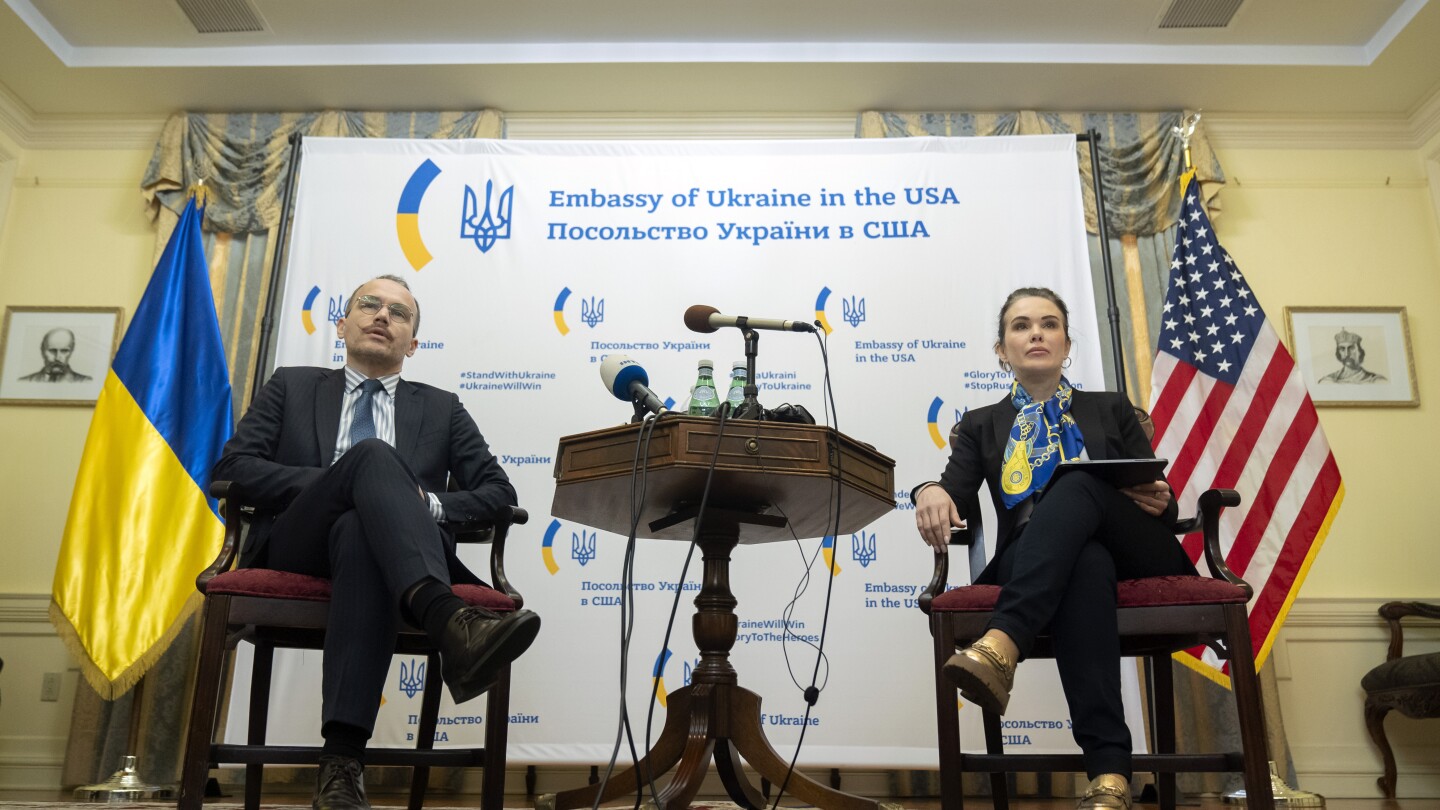WASHINGTON (AP) — A pair of Ukrainian justice ministers in Washington this week urged U.S. lawmakers to put aside domestic political disputes and find a way to continue supporting Ukraine in its defense against Russia.
Minister of Justice Denys Maliuska and Deputy Justice Minister Iryna Mudra traveled to the U.S. to promote a bill that would allow the U.S. to repossess Russian state assets held in America and be used for the benefit of Ukraine.
At a press conference at the Ukrainian embassy Wednesday, the ministers also called on U.S. lawmakers to pass a stalled supplemental funding proposal that would allot tens of billions of dollars in additional aid to Ukraine. Their visit comes as Ukrainian units on the front lines are rationing munitions in their fight against Russian forces that have a vast advantage in supplies.
“What we call for is to put aside any divisions or any political disputes,” Maliuska said, since Democratic and many Republican leaders agree that support should be provided. “We really hope that the supplemental and the REPO bill, together or separately will be voted on soon enough,” Maliuska said.
The ministers met with lawmakers, though they did not talk to Speaker of the House Mike Johnson. The Republican speaker has resisted taking up the aid package passed by the Senate last month and insisted that the House work its own will on the matter.
Maliuska and Mudra pushed for bipartisan legislation circulating in Washington called the Rebuilding Economic Prosperity and Opportunity for Ukrainians Act, which would use assets confiscated from the Russian Central Bank and other sovereign assets for Ukraine. That measure has not moved forward.
The U.S. and its allies froze hundreds of billions of dollars in Russian foreign holdings in retaliation for Moscow’s invasion of Ukraine. Those billions have been sitting untapped mostly in European Union nations as the war grinds on, now in its third year, while officials from multiple countries have debated the legality of sending the money to Ukraine.
“We really hope the U.S. is going to be a champion in terms of confiscation of Russia’s sovereign assets and leading other countries,” Maliuska said, adding that “the hardest discussion will be with regards to resources and assets located in Belgium.” More than two-thirds of Russia’s immobilized central bank funds are located in the EU.
The idea is gaining momentum in the U.S.
Last month U.S. Treasury Secretary Janet Yellen offered her strongest public support yet for liquidating roughly $300 billion in frozen Russian Central Bank assets and using them for Ukraine’s long-term reconstruction.
Earlier this month, the European Union passed a law to set aside windfall profits generated from frozen Russian central bank assets. Yellen called it “an action I fully endorse.”
“REPO is not about money,” Maliuska said. “This would be reparations.”

